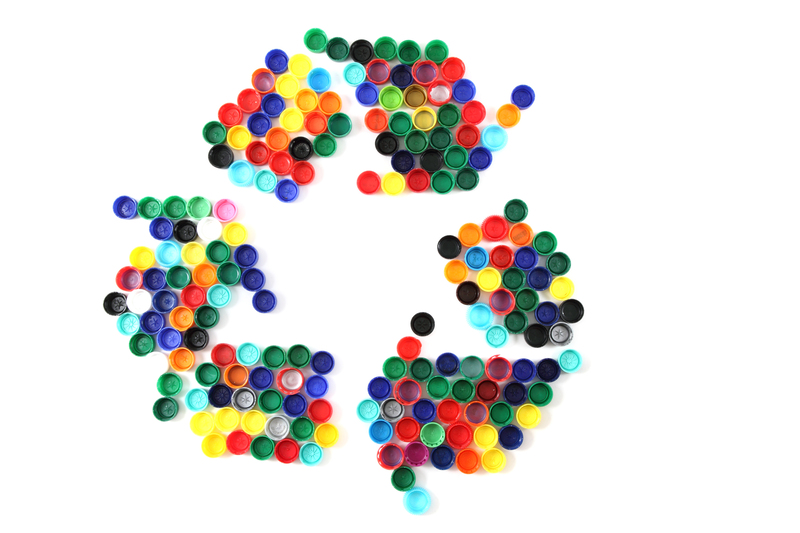Posted on 02/06/2025
How to Reduce Plastic Waste at Festivals
Festivals are vibrant, inclusive, and energetic events that bring people together to celebrate music, culture, art, and community. However, they also have a dark side: the excessive waste generated, especially plastic waste. According to a report by Clean Up Britain, about 23,500 tonnes of waste are generated by UK music festivals each year, with a significant portion being plastic. Thankfully, there are numerous methods and initiatives that can significantly reduce plastic waste at these events. This article delves into strategies and provides practical tips to create a more sustainable festival experience.
Understanding the Scope of Plastic Waste at Festivals
To tackle the issue of plastic waste, it's crucial first to understand the scale of the problem. Festivals generate enormous amounts of single-use plastic items, including disposable cups, plates, cutlery, straws, plastic bottles, packaging, and promotional materials like balloons and banners. Unfortunately, much of this waste isn't recycled and often ends up in landfills or, worse, in natural habitats, causing long-term environmental harm.
Beyond environmental damage, the cleanup operations for festivals are labor-intensive and costly. Reducing plastic waste can significantly cut these costs and improve the overall sustainability of the event.

Sustainable Alternatives to Single-Use Plastics
One of the most effective ways to reduce plastic waste is by substituting single-use plastics with sustainable alternatives. Here are some practical recommendations:
1. Reusable Cups and Containers: Encouraging attendees to bring their own reusable cups and containers can drastically reduce the number of single-use items. Festivals can incentivize this behavior by offering discounts on drinks for those who bring their own cups or by selling branded, reusable cups onsite.
2. Biodegradable and Compostable Products: While not a perfect solution, biodegradable and compostable plates, cutlery, and straws are better alternatives to traditional plastics. These items break down more easily and can significantly reduce the volume of waste.
3. Edible Cutlery: Some innovative companies manufacture edible cutlery made from grains and legumes. These products provide a dual-purpose solution, reducing the need for plastic cutlery and offering an additional snack option for festival-goers.
Implementing Effective Waste Management Systems
Another crucial aspect of reducing plastic waste is the establishment of robust waste management systems. Implementing these systems effectively ensures that recyclables are separated correctly and disposed of in an environmentally friendly manner.
1. Clearly Labelled Recycling Stations: Setting up well-marked recycling stations throughout the festival grounds encourages attendees to dispose of their waste correctly. Signage should be clear, concise, and informative, indicating what can and cannot be recycled.
2. On-site Waste Sorting: Hiring a team to sort through waste on-site ensures that recyclable and compostable items are separated from landfill waste. This step not only increases the recycling rate but also educates attendees on proper waste disposal practices.
3. Partnerships with Waste Management Companies: Collaborating with specialized waste management companies can streamline waste processing and ensure that recyclable materials are handled correctly. These companies often have the expertise and resources needed to manage large-scale waste efficiently.
Promoting a Zero-Waste Mindset
Creating a zero-waste mindset among festival-goers is crucial for the long-term success of any waste reduction initiative. Here are some strategies to foster this culture:
1. Educational Campaigns: Use social media, newsletters, and onsite signage to educate attendees about the importance of reducing plastic waste and how they can contribute. Highlight the environmental benefits and the positive impact on the festival's sustainability efforts.
2. Incentive Programs: Implementing programs that reward sustainable behavior can encourage attendees to participate actively. Offer perks like exclusive festival merchandise, discounts on tickets, or VIP experiences for those who demonstrate a commitment to zero-waste principles.
3. Workshops and Interactive Activities: Hosting workshops that teach attendees how to live more sustainably can inspire them to adopt these practices not only at the festival but also in their everyday lives. Topics could include reducing plastic use, upcycling, and sustainable living tips.
Collaborating with Vendors and Sponsors
Vendors and sponsors play a significant role in either contributing to or reducing plastic waste. Engaging with them to adopt sustainable practices is essential for a comprehensive waste reduction strategy.
1. Sustainable Vendor Requirements: Establish guidelines for food and merchandise vendors that mandate the use of sustainable materials. Encourage or require vendors to use compostable or reusable containers and to minimize packaging.
2. Partnerships for Sustainable Products: Work with sponsors and partners who share the festival's commitment to sustainability. This collaboration might include providing reusable water bottles, sustainability kits, or eco-friendly merchandise.
3. Vendor Audits: Conduct regular audits of vendors to ensure compliance with sustainability guidelines. Recognize and reward vendors who go above and beyond in their efforts to reduce plastic waste.
Leveraging Technology for Sustainable Practices
Technology can be a powerful ally in the fight against plastic waste. Various apps and tools can help festivals monitor and reduce waste, track sustainability metrics, and engage attendees in real-time.
1. Waste Management Apps: Use apps that help monitor waste levels, track recycling rates, and manage waste logistics effectively. These tools can provide valuable data to improve waste management strategies year after year.
2. Digital Ticketing and Communication: Digital tickets reduce the need for plastic wristbands and paper tickets. Similarly, using online platforms for communication can minimize the need for printed materials, further reducing paper and plastic waste.
3. Interactive Sustainability Features: Incorporate interactive features into the festival's mobile app, such as sustainability challenges, waste reduction tips, and real-time tracking of the festival's environmental impact. This engagement can motivate attendees to participate actively in waste reduction efforts.

Post-Festival Cleanup and Waste Analysis
The commitment to reducing plastic waste doesn't end when the festival does. Post-festival activities are equally important in ensuring long-term sustainability.
1. Comprehensive Cleanup: Organize a thorough post-festival cleanup to collect and properly dispose of all remaining waste. Involve local community groups or volunteer organizations for additional support and engagement.
2. Waste Audit: Conduct a detailed waste audit to understand the types and quantities of waste generated. Use this data to identify areas for improvement and develop more effective waste reduction strategies for future events.
3. Continuous Improvement: Use feedback from attendees, vendors, and waste management teams to refine and improve sustainability practices. Regularly updating and enhancing waste reduction initiatives ensures that the festival's environmental impact continually decreases.
Conclusion
Reducing plastic waste at festivals is not only an achievable goal but also a critical one for protecting the environment and enhancing community experiences. By implementing sustainable alternatives, effective waste management systems, educational campaigns, and collaborative partnerships, festivals can make significant strides toward zero-waste events. The collective effort of organizers, vendors, sponsors, and attendees is vital in creating a sustainable future for festivals worldwide. Let's embrace the challenge and celebrate not just music and art, but also our commitment to preserving our planet.
Latest Posts
Tips for Proper Disposal of Regular Waste
Garbage Cleanup Bags - Efficient Skip Substitute

































 Get a Quote
Get a Quote